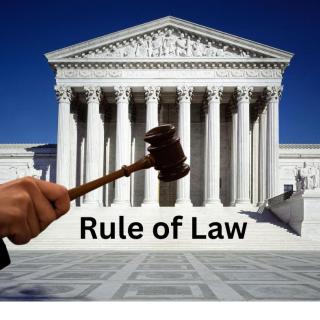What does Issue 3 say?
It is understandable that people want concrete answers concerning what will happen if Issue 3 passes. To help clear up a few misconceptions concerning ResponsibleOhio’s ballot language – assuage some of the uncertainty surrounding it – we have consulted experts and attorneys to answer these commonly heard and often misunderstood questions:
Does Issue 3 have a clause about medical marijuana?
Yes. The use of marijuana for medical conditions leads off the amendment. Patients who have been certified by a doctor to have defined medical conditions can use, possess and purchase cannabis from non-profit dispensaries. These are mandated to be operational no later than May 30, 2016.
Will there be caregivers?
Yes. They will need to be licensed by the Commission and serve their patients for purposes more than just acquiring marijuana. They can purchase, possess and transport it on behalf of those patients.
What are the rules for homegrown marijuana?
The Commission established under the Amendment must define rules that are reasonable, practical and not overly cumbersome. They must ensure that home growing takes place in an enclosed, locked space outside of public view and inaccessible to children. Permits would be issued at roughly the same time as the marijuana establishments and dispensaries, May 30, 2016.
What are the penalties for growing marijuana without a permit?
The penalties would be the same as they currently are under the Ohio Revised Code as established by decriminalization in the 1970s. Based on weight, penalties for cultivation are the same as those for possession. Please check the NORML website under Possession for those penalties. http://norml.org/laws/item/ohio-penalties-2
What are the penalties for having more than "four flowering plants?"
If someone were arrested for growing for more than four flowering plants, penalties per the mechanics of constitutional law would revert to the Ohio Revised Code. The exact penalties would depend on the number of plants in excess of the four and their combined weight.
What are the penalties for possessing more than eight oz. of homegrown?
If someone were arrested for possessing more than eight oz. of homegrown, those first eight ounces would be legal with the remainder subject to the provisions for marijuana possession in the Ohio Revised Code. For example, if that overage was less than 100 grams, the penalty would be a minor misdemeanor with a maximum $150 fine.
Will Issue 3 result in additional marijuana-related criminal offenses and penalties?
No, Issue 3 does not make any aspect of using, buying, selling or growing marijuana more illegal than it is now, except for calling on the legislature to increase penalties for providing to those underage.
Will the Commission draft penalties?
Yes. The Commission will have the power to craft civil penalties for failure to comply with regulations and repeat violations. Criminal penalties would be the province of the General Assembly.
What are the powers of the Commission?
The Commission will have the power to promulgate rules, issue applications and licenses, enforce regulations, inspect facilities, order remedial action, suspend or revoke licenses, relocate facilities, develop and publicize consumer demand metrics, conduct annual audit of the growing sites, create and oversee standards, establish real-time “seed to sale” tracking, serve as a clearing house for marijuana information, establish a business incubator, and fund dispensaries.
What business model does Issue 3 propose?
Marijuana production in Ohio will occur on 10 properties around the state, which are called Marijuana Growth Cultivation and Extraction facilities, plural because multiple facilities – and multiple growers – can occupy one property. These facilities will supply over 1,150 licensed retail marijuana stores, as well as numerous medical marijuana dispensaries and marijuana product manufacturing facilities. All of these licenses will be open to the public. For the first four years, commercial growing will be limited to the 10 properties. If the quantities produced are insufficient, the Commission can award additional licenses at different locations.
Is there a tax loophole in Issue 3?
No. All marijuana establishments must pay the same taxes that other businesses pay and are prohibited from receiving any special tax treatment. Cultivators, manufacturers and retailers will pay a state tax off the top of their gross revenue without allowance for deductions. The rates are 15 percent for the cultivators and manufacturers and 5 percent for retailers. In addition, the facilities and stores will pay state commercial activities taxes and standard local taxes. These facilities and stores cannot receive special abatements.
Does Issue 3 prevent marijuana research?
No. The Commission established under Issue 3 is mandated to serve as a clearing house for research.
What happens if the federal government reclassifies marijuana?
Because federal law is held supreme over state law, federal changes, where conflicting, would override Issue 3 provisions and restrictions.



